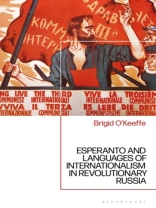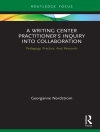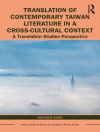Winner of the 2022 Ab Imperio Award
Hoping to unite all of humankind and revolutionize the world, Ludwik Zamenhof launched a new international language called Esperanto from late imperial Russia in 1887. Ordinary men and women in Russia and all over the world soon transformed Esperanto into a global movement.
Esperanto and Languages of Internationalism in Revolutionary Russia traces the history and legacy of this effort: from Esperanto»s roots in the social turmoil of the pre-revolutionary Pale of Settlement; to its links to socialist internationalism and Comintern bids for world revolution; and, finally, to the demise of the Soviet Esperanto movement in the increasingly xenophobic Stalinist 1930s. In doing so, this book reveals how Esperanto – and global language politics more broadly – shaped revolutionary and early Soviet Russia.
Based on extensive archival materials, Brigid O»Keeffe»s book provides the first in-depth exploration of Esperanto at grassroots level and sheds new light on a hitherto overlooked area of Russian history. As such,
Esperanto and Languages of Internationalism in Revolutionary Russia will be of immense value to both historians of modern Russia and scholars of internationalism, transnational networks, and sociolinguistics.
Associate Professor Brigid O’Keeffe
Esperanto and Languages of Internationalism in Revolutionary Russia [EPUB ebook]
Esperanto and Languages of Internationalism in Revolutionary Russia [EPUB ebook]
Купите эту электронную книгу и получите еще одну БЕСПЛАТНО!
Формат EPUB ● страницы 266 ● ISBN 9781350160675 ● издатель Bloomsbury Publishing ● опубликованный 2021 ● Загружаемые 3 раз ● валюта EUR ● Код товара 7812732 ● Защита от копирования Adobe DRM
Требуется устройство для чтения электронных книг с поддержкой DRM












